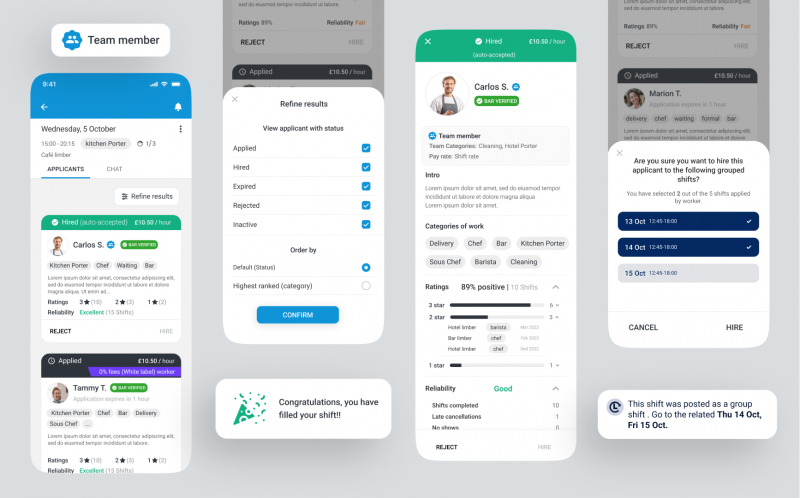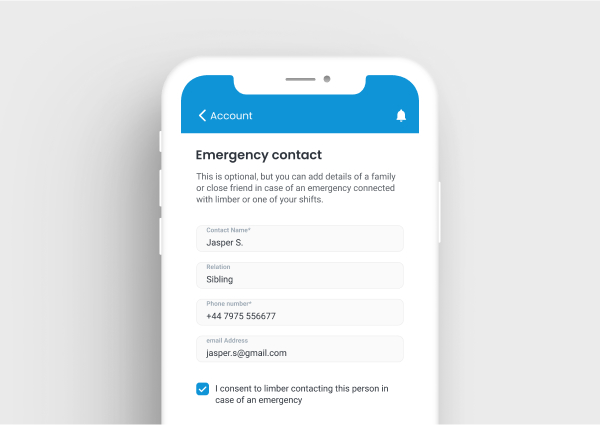Most of us are familiar with that dreaded ‘I don’t know where to start feeling’, the overwhelming mix of stress and confusion that makes you want to give up, go back to bed and bury your head in a box set. It’s totally normal to feel that way, but it’s a good idea to know how to combat it. As a freelancer, it’s important to be disciplined and to keep yourself accountable, so try to make time for planning and goal setting.
While your career success doesn’t necessarily depend on it, having a strategy, at the very least, allows you to separate your priorities and work in a productive, valuable way. Goals provide structure that otherwise might not be there, due to the lack of co-workers, managers and progress checks (thank goodness), so it’s well worth making the time to think about them. You don’t need to be super focused or productive to succeed, you just need to know how to properly break down your work load.
Start by asking yourself these questions
- How much time do I have to commit?
- How much income do i need to make from this?
- Do I want to do this full time, or as a side hustle?
- And most importantly…will this make me feel happy
Break things up using ‘SMART’ goals
‘Smart goals’ might sound like something you were taught in a boring team building exercise, but hear us out, they can actually really help. ‘SMART’ stands for the following:
- Specific: This is the what, who, where, when, how and why of your business. Try to make your goals and clear and as detailed as possible. Maybe you’d like more online clients, perhaps you’d like to reduce the amount of hours you work, whatever it is, try to specify.
- Measurable: think about how you’re going to track your progress, so you can see what’s going well and where you need to improve. It’s the difference between ‘Id like lot’s of clients’ and ‘I’d like ten more clients’. The later gives you a clear goal to work towards. Yes, of course you’d like plenty of new clients but it’s all about working in small manageable chucks.
- Achievable: consider whether your goals are actually achievable, taking on too much at once pretty much always leads to things going wrong. We love a bit of ambition, but growing your business isn’t a race, so don’t speed ahead and do yourself an injury in the long run. (If we’re going with the running analogy we may as well continue with it) think of your business as a marathon, you wouldn’t run a marathon without hard work and preparation, and the same applies here, you simply can’t expect success all at once. Little steps make up long term goals.
- Relevant: Does your idea have potential to help your business in the long term? How valuable is it in the bigger picture?
- Time bound: Don’t be afraid to set yourself deadlines, these don’t need to be carved in stone, but whether it’s long term or short term, having a deadline to work towards helps you to prioritise and stay on task. Breaking down your vision into long and short terms goals will help you take an honest look at what you really want to achieve. It’s always a good idea to keep the bigger picture in mind, but don’t overwhelm yourself by focusing on too heavily on something that’s not going to be achievable in the first couple of weeks. Start by thinking about what you’d like to achieve each day of the week and write a realistic checklist and notes around what you need to get done.
Prepare financially
If you’re just starting out, it’s good to make sure that you have a decent grasp on your financial situation. By having a good idea of your living expenses and your monthly outgoings, you’ll be able to get a rough idea of how many clients you will need and how much you’ll need to charge them to ensure your work is sustainable. You can then budget and spend accordingly.
For those of you who are already pros, you can simply relax in the knowledge that limber is here to look after the super important stuff like tax, payslips, pensions, so you don’t have to.
Keep Track
Tracking your goals regularly will help you understand your progress and also provides the opportunity to adapt and change your goals if necessary. What you hoped would work at the beginning, might not necessarily be the method you end up pursuing, so don’t feel disheartened if things change direction. Don’t beat yourself up if you’re struggling to meet your targets, simply adjust your goals and continue. As long as things are steady or improving, you’re doing the right thing.
Stay Motivated
When thinking about your goals look to your friends, family, founders, CEO’S, and other freelancers who are achieving the things you’d like to achieve. Goal setting isn’t just about figuring out a to-do list, it’s part of a bigger picture, so chat to people who have been in business for a while, and could perhaps share a secret or two to aid your development. If doubt begins to creep in, it’s also great to know exactly where you can go for inspiration and motivation.




